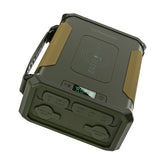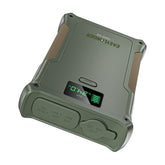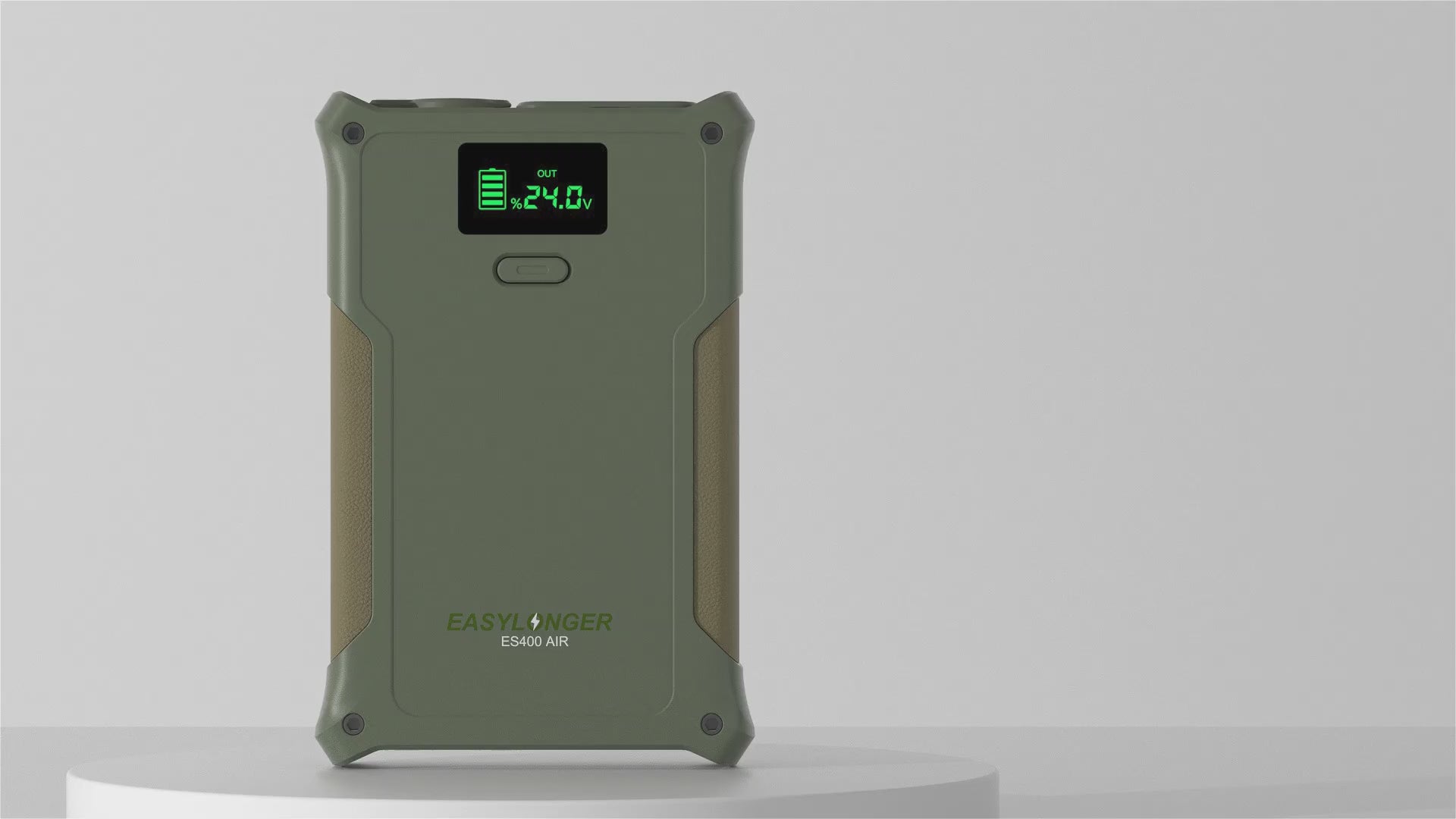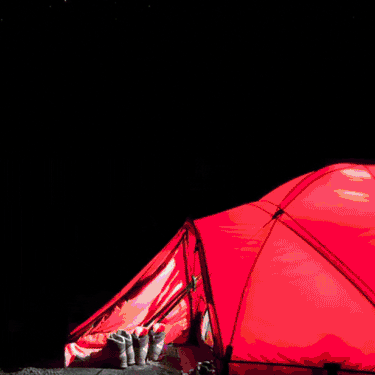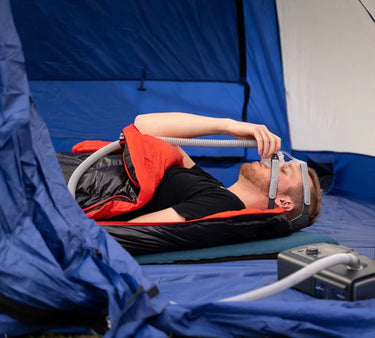How to Power Your CPAP Machine While Camping: A Simple Guide
Camping is a fantastic way to escape the hustle and bustle of city life and enjoy the beauty of nature. However, if you use a CPAP machine to treat sleep apnea, you may run into a problem: how do you power your CPAP machine while camping? Don’t worry! Whether you’re planning to camp at a powered campground or completely off the grid, we’ve got simple solutions to make sure you can continue your CPAP therapy while enjoying your outdoor adventure. Today, we’re going to cover two main ways to solve this issue and help you choose the best option for your needs.
Why is Your CPAP Machine Important?
First, let’s quickly explain what a CPAP machine does. A CPAP (Continuous Positive Airway Pressure) machine is used to treat sleep apnea by providing a continuous flow of air to keep your airways open, preventing airway collapse while you sleep. For many people, a CPAP machine is essential for getting a good night’s sleep, especially for those with sleep apnea.
However, when you’re camping or outdoors, the challenge is that most CPAP machines need a steady power source to operate, which can be tricky in remote areas. But don’t worry—there are ways to keep your CPAP powered even when you’re far from home.
Two Ways to Power Your CPAP Machine While Camping
If you plan to keep using your CPAP machine while camping, you mainly have two options for getting power:
- Stay at a Powered Campground
- Use a Portable CPAP Battery
Let’s take a closer look at these two options and help you decide which one works best for your camping trip.
1. Stay at a Powered Campground
If you don’t want to worry about powering your CPAP machine, staying at a powered campground is the simplest solution. Many campgrounds, especially those like KOA or state parks, offer electrical hookups. This means you can plug your CPAP directly into the campground’s power supply and continue using it just like you would at home.
Pros:
- No need to carry extra batteries: You can just plug your CPAP into the campground’s power outlet and sleep soundly.
- More amenities: These campgrounds usually have other amenities like bathrooms, showers, Wi-Fi, and more, making your camping experience more comfortable.
Cons:
- Less peaceful: Powered campgrounds tend to be busier and may not offer the quiet, serene camping experience you’re looking for. If you prefer a more remote, peaceful setting, this might not be the best option for you.
- Difficult to book during peak seasons: Popular campgrounds can fill up quickly, especially on weekends and holidays, so you may need to plan ahead.
2. Use a Portable CPAP Battery and Go Off the Grid
If you want to fully enjoy the peace and solitude of remote camping, you’ll need to rely on a portable CPAP battery. These batteries are designed to power your CPAP machine in places without electricity, like deep in the woods, near a lake, or in any other off-the-grid location.
Pros:
- Total freedom: With a portable CPAP battery, you can go anywhere without worrying about power sources. You can camp in more secluded, quiet spots away from the crowds.
- Longer use: High-quality CPAP batteries can last for several days without needing a recharge, making them ideal for longer outdoor adventures.
Cons:
- Limited battery life: While portable batteries can last a few nights, using features like a humidifier or heated hose will drain the battery faster. For longer trips, you may need to bring extra batteries.
- Costly: Good CPAP batteries can be expensive, typically ranging from $200 to $700, depending on the model and features.
How to Choose the Right CPAP Battery
When choosing a CPAP battery for camping, there are a few important factors to consider:
- Compatibility: Make sure the battery is compatible with your CPAP machine. Different CPAP models may require different voltage levels and connections. Most CPAP batteries will provide detailed compatibility information to help you choose the right one.
- Battery Capacity: The capacity of the battery (measured in watt-hours or Wh) determines how long it will last. Generally, the higher the capacity, the longer the battery will run. If you’re camping for multiple days, a higher-capacity battery is a better choice.
- Charging Options: Some CPAP batteries come with solar charging capabilities. If you plan to be off the grid for an extended period, solar charging is a great way to ensure you never run out of power.
- Safety Features: Look for a battery that has built-in protection for overcharging, overdischarging, short circuits, and other safety features to prevent overheating and damage to the battery.
Best Portable CPAP Battery Recommendation: Efficient, Safe, and Reliable
If you’re looking for a highly recommended portable CPAP battery, the ES960 Off-Grid CPAP Battery is an excellent option. It’s designed specifically for CPAP users, providing reliable power for your camping trips. Here are some of the key features of the ES960:
- 297.6Wh High Capacity: Provides enough power for at least 3 nights of use with your CPAP machine (without the humidifier and heated hose). If you use these features, the battery life will be shorter.
- Wide Compatibility: Works with most CPAP machines, including ResMed S9, AirSense 10, AirCurve 10, Philips DreamStation, and others.
- Multiple Charging Options: You can charge it with a 60W Type-C PD charger, the included 72W AC adapter, or even solar panels for off-grid charging.
- Portable and Safe: The battery is lightweight, durable, and uses LiFePO4 technology, which makes it safe and long-lasting (with up to 3,000 charging cycles).
3 Tips for Using CPAP While Camping
- Consider Using a Travel CPAP Device
- Travel-sized CPAP devices, like the ResMed AirMini or HDM Z2, are compact, lightweight, and perfect for camping. These smaller machines pair perfectly with portable batteries like the ES960, making your camping experience worry-free.
- Avoid Using an Inverter
- Inverters convert DC power (battery) to AC power, but they can quickly drain your battery. For longer battery life, use a battery designed specifically for CPAPs instead of relying on an inverter.
- Consider Solar Charging
- If you plan to camp for a long period without access to electrical outlets, solar charging is a fantastic option. The ES960 supports solar charging, so you can ensure your CPAP stays powered up while you’re off the grid.
Conclusion
Using your CPAP machine while camping doesn’t have to be difficult. Whether you choose to stay at a powered campground or use a portable CPAP battery like the ES960 Off-Grid CPAP Battery, you can continue your sleep therapy and enjoy the great outdoors without worry. With the right preparation and a reliable power source, you’ll be able to sleep soundly, no matter where your camping adventures take you. Happy camping!

